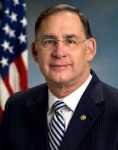- Supporting Americans with Disabilities and Their Families (3/6/25)
- Standing Up for Sportsmenís Access and Safety (2/20/25)
- Bringing Farm Country Voices to Washington (2/12/25)
- A New Front in the Fight Against Prostate Cancer (2/6/25)
- Taking Action to Reverse Immigration Failures and Protect Communities (1/30/25)
- Setting the Agenda for 2025 (1/22/25)
- Making progress for Arkansasís water infrastructure (1/16/25)
Deborah Sampson's Legacy
During the Revolutionary War, Deborah Sampson joined the fight for independence. She had to conceal her identity to help defeat the British on the battlefield. Disguised as a man, she joined the 4th Massachusetts Regiment as “Robert Shurtleff” and fought in combat. She sustained multiple injuries, but cared for her wounds without assistance so she could maintain her secret.
After falling ill more a year and a half into her service, Deborah Sampson’s true identity was revealed and she was honorably discharged. Her legacy lives on today, as her name graces landmark legislation to address the gender gap at the Department of Veterans Affairs (VA).
The Deborah Sampson Act would eliminate barriers to care and services that many women veterans face and would help ensure the VA can address the needs of women –– who we already know are more likely to face homelessness and unemployment as well as go without needed health care. Senator Jon Tester (D-MT) and I introduced this bill to ensure the VA has the capability to meet the needs of the changing veteran population.
There are 19,000 women veterans in Arkansas. According to VA data, women comprised nine percent of the nationwide veteran population in 2015. That number is expected to increase to more than 16 percent within the next 25 years. The modern makeup of our veteran population requires us to reexamine how we can best serve their needs.
Strengthening care and support for women veterans is a top priority of several veteran service organizations (VSOs) including the American Legion, Disabled American Veterans and Veterans of Foreign Wars. In their legislative priorities for 2020, they each call on Congress to strengthen care and support for women veterans.
The VFW commander-in-chief urged VA to update its services and benefits to reflect the needs of women veterans. “VA will have to address more resources to providing care unique to women and offering services that have traditionally been afterthoughts, and not just in health care. VA also has to ensure that it promotes a culture that ensures women have avenues to express concerns and seek redress, to take control of their health care, and serve as their own best advocates,” Commander Schmitz wrote in written testimony to Congress in early March. He urged the Senate and House VA Committee to pass the Deborah Sampson Act to address these issues.
I’m proud to have the support of our nation’s largest VSOs because their members understand the disparity of services that exist at the VA between men and women. VA facilities need to be ready to care for more women veterans, but currently lack the ability to provide them equitable care or services. Our bill is a comprehensive expansion of assistance that eliminates barriers to care by increasing the number of gender-specific providers in VA facilities, expands training of clinicians and retrofits VA facilities to enhance privacy for women veterans.
As we recognize March as Women’s History Month and celebrate the contributions and achievements of women, we must also ensure women who served in uniform receive the care and services they earned. We can do that by passing the Deborah Sampson Act into law.
Posting a comment requires free registration:
- If you already have an account, follow this link to login
- Otherwise, follow this link to register

